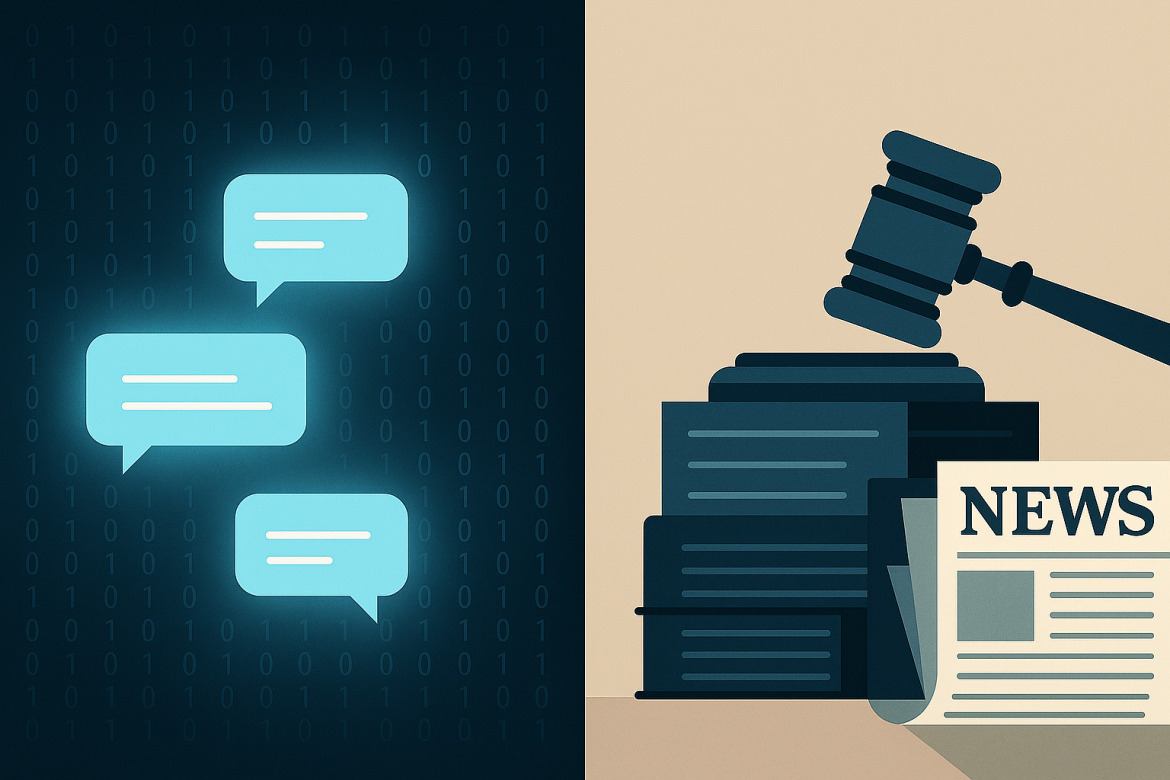OpenAI is locked in a pitched legal battle with The New York Times over access to 20 million ChatGPT user conversations, with a federal magistrate judge already ruling against the AI company this week.
The Times initially demanded access to 120 million conversations as part of its copyright infringement lawsuit, later negotiated down to a randomly sampled 20 million logs that could reveal how ChatGPT learned from news articles.
OpenAI’s chief information security officer published a scathing public statement on Wednesday, accusing the Times of “invading user privacy,” but the company didn’t mention it had already lost the underlying court battle on November 7.
What started as a copyright dispute has evolved into a watershed moment defining what data tech companies must surrender when litigation collides with privacy commitments, and whether users can trust AI companies to delete their conversations.
The copyright case that turned into a privacy crisis
The Times sued OpenAI and Microsoft in December 2023, alleging the companies illegally scraped millions of news articles to train ChatGPT without permission or compensation.
The newspaper seeks billions in damages plus destruction of all GPT models trained on its copyrighted content, an existential threat to OpenAI’s flagship product.
To build its case, the Times argued it needed access to actual ChatGPT conversations to show how frequently the model reproduces news content, hallucinations, and passages directly attributed to Times reporting.
Here’s where the legal stakes explode. Magistrate Judge Ona Wang ruled on November 7 that OpenAI hadn’t adequately explained why user privacy wasn’t already protected by protective orders and de-identification protocols required for lawyers reviewing the data.
OpenAI fired back, claiming it’s “unaware of any court ordering wholesale production of personal information at this scale.”
The AI giant warned that the precedent would allow anyone suing an AI company to demand tens of millions of conversations without narrowing requests for relevance.
The judge dismissed OpenAI’s concerns, pointing to a similar case where Anthropic was forced to produce 5 million chatbot conversations for a music publisher lawsuit.
This sets a precedent OpenAI argues is fundamentally different because the Times is demanding complete user conversations, not just isolated prompt-output pairs.
Why this case redefines privacy for AI users everywhere
Beyond the courtroom theatrics, this battle forces a reckoning with fundamental questions about AI privacy that regulators and companies have dodged for years.
OpenAI CEO Sam Altman is now pushing for “AI privilege,” legal protections treating conversations with AI systems like attorney-client communications, which are shielded from discovery.
That framing acknowledges the uncomfortable reality: millions of ChatGPT users discuss sensitive topics, medical symptoms, financial anxieties, and personal struggles with an AI trained on vast internet data and now subject to indefinite retention demands in unrelated lawsuits.
Security experts and legal analysts warn that the precedent could invite third-party discovery attempts in completely separate litigation, with litigants seeking access to an adversary’s preserved AI conversation logs.
Imagine a hostile deposition where opposing counsel demands your ChatGPT logs to prove you discussed a business strategy or competitive advantage.
The court ordered OpenAI to maintain all flagged conversations and gave The Times authority to expand its flagged user list while reviewing preserved records, meaning the Times itself decides which conversations stay indefinitely retained.
OpenAI secured limited relief. As of September 26, 2025, the company no longer must preserve all new chat logs going forward, only data already saved and conversations flagged by the Times.
But the damage to trust is already done. OpenAI’s standard 30-day deletion policy, a core privacy promise, now has a massive exception carved out by litigation that users never consented to and don’t know about.
The post Inside OpenAI’s legal battle: what’s at stake in the fight over ChatGPT conversations? appeared first on Invezz
